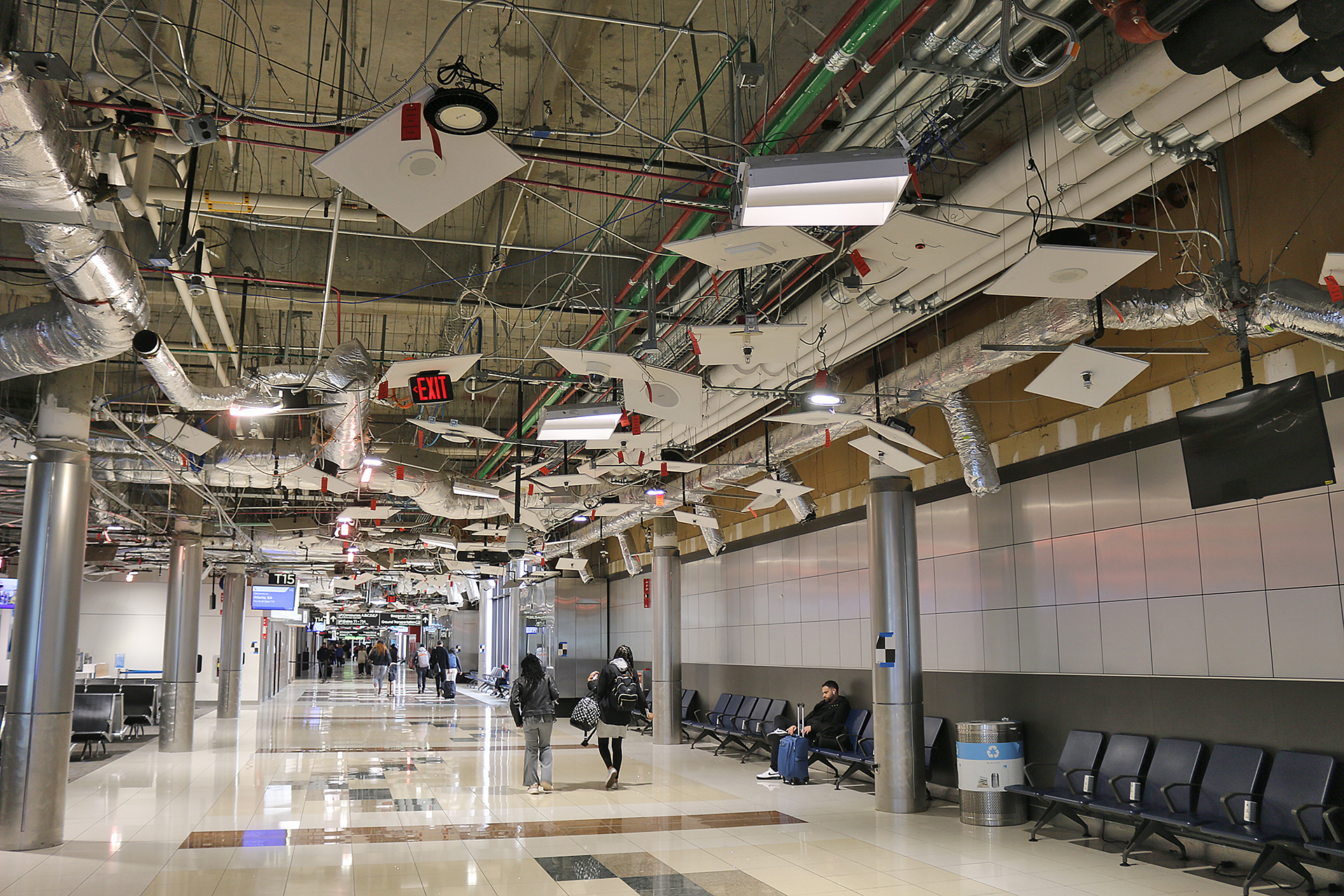Note: This article pertaining to Watch Out For Civil Asset Forfeiture at Airports was originally published on Wednesday, December 6, 2023 at 8:03 in the evening and has been updated.
If for some reason you have plans to travel via airplane with a large sum of money, watch out for civil asset forfeiture at airports in the United States. Civil asset forfeiture is apparently alive and well, according to reports from multiple media sources.
Watch Out For Civil Asset Forfeiture at Airports

Civil asset forfeiture is a legal process in which law enforcement officers may seize assets from anyone who is suspected of being involved with a crime or illegal activity. Law enforcement officers may conduct civil asset forfeiture without permission, probable cause, reasonable suspicion, or advance notice — and they are not required to say why they are engaging in this activity. The owners of the property which is taken are not necessarily required to be charged with any wrongdoing.
The international airport which serves the greater Atlanta metropolitan area has been the subject of reports of civil asset forfeiture.
One victim of civil asset forfeiture had “fought in courts for years to get open records data from Homeland Security on seizures”, according to this article by Justin Gray, who is an investigative reporter for WSB-TV Channel 2 news in Atlanta. “That data shows that at Hartsfield-Jackson Atlanta International Airport just one agency, Customs and Border Protection, seized more than $108 million in cash from travelers between 2000 and 2016.”
The article also includes examples of individuals who have been subject to civil asset forfeiture at the airport. At least two of them had sued and won their money back — but not without experiencing a long and expensive process.
Even worse is that the federal agents apparently do not need to wear uniforms to engage in civil asset forfeiture, as reported in this investigative article by Brendan Keefe of Atlanta News First.
A class action lawsuit was filed in January of 2020 in the United States District Court for the Western District of Pennsylvania against both the Drug Enforcement Administration of the United States and the Transportation Security Administration. “The class action lawsuit was filed in January 2020 on behalf of Terry Rolin and his daughter Rebecca Brown”, according to this article by Andrew Wimer of the Institute for Justice, which is a nonprofit, public interest law firm whose mission is to end widespread abuses of government power and secure the constitutional rights that allow all Americans to pursue their dreams. “TSA and DEA officials seized Terry’s life savings of over $82,000 from Rebecca as she was flying from Pittsburgh to her home outside Boston, where she intended to open a joint bank account to help care for her father. After IJ filed the lawsuit, DEA returned Terry and Rebecca’s money, but only after holding it for over six months without any accusations of criminality, let alone criminal charges.”
A judge rejected a motion to dismiss the case by the federal government on Tuesday, March 30, 2021, which permitted the case to proceed.
A bipartisan bill was introduced by the House of Representatives of the United States called the Forced Arbitration Injustice Repeal Act, which is more commonly known as the FAIR Act. It would end administrative forfeiture — which means that every forfeiture case would be required to go to court. It also would end the profit incentive for law enforcement agencies.
A Brief History of Civil Asset Forfeiture

Despite the civil asset forfeiture program having become “a part of the fight against drugs in the United States since 1970 when Congress allowed police were allowed to seize aircraft, boats and other property used to transport narcotics or bought by drug lords with ill-gotten gains”, it has since been expanded to include other property to be seized — and has been abused by some law enforcement agencies as a source of income.
Eric Holder issued two orders back in January of 2015 — when he was still attorney general of the United States — which were designed to better help protect innocent citizens. With the exception of public safety reasons, members of local and state law enforcement agencies were barred from using federal law to seize cash, cars, and other property without warrants or criminal charges.
As a result of those two orders, the Drug Enforcement Agency — which pursues the most civil asset forfeiture cases — reported that cash seizures were reduced by approximately 50 percent, according to this official review from the Office of the Inspector General of the Department of Justice of the United States which has since been removed.
Despite the success of the two orders issued by Holder, Jefferson B. Sessions III issued this order on Wednesday, July 19, 2017 — after he succeeded Holder as attorney general of the United States — which revoked those two orders while simultaneously further expanded a federal forfeiture program called equitable sharing, which lawfully permitted components and agencies of the Department of Justice of the United States to forfeit all types of assets that were confiscated by state or local law enforcement.
That order became effective immediately on that day in 2017.
Justices of the Supreme Court of the United States ruled unanimously on Wednesday, February 20, 2019 that the ban on excessive fines by the Constitution of the United States applies to state and local governments and thus limits their ability to use fines to raise revenue.
Final Boarding Call

Civil asset forfeiture is unfortunately not new, as it has existed for decades in various forms. With civil asset forfeiture, your property is generally guilty until you prove it innocent, which can be an arduous and prohibitively expensive process…
…and the odds of you being successful of having your assets returned to you is 41 percent.
As I advised in this article pertaining to 14 tips on how you can prevent theft in hotel properties and aboard airplanes, “If you can, separate your valuables — such as cash or jewelry — and do not keep them consolidated in one place. This way, if anything is stolen, the chances of all of your valuable items being stoled are decreased. Better yet, never carry any item which you cannot bear to lose — rather, leave it secured at home.” This is the single best way to prevent theft — whether illegally by a criminal or legally by a corrupt law enforcement officer.
Letting your money and valuables fly away when you fly as a passenger simply is not logical.
As a traveler, I had never had money blatantly confiscated by a law enforcement officer without provocation or probable cause — but then again, I cannot recall a reason to carry around large amounts of cash and valuables with me.
Have you ever experienced civil asset forfeiture — or something similar — in your travels?
All photographs ©2023 by Brian Cohen.

